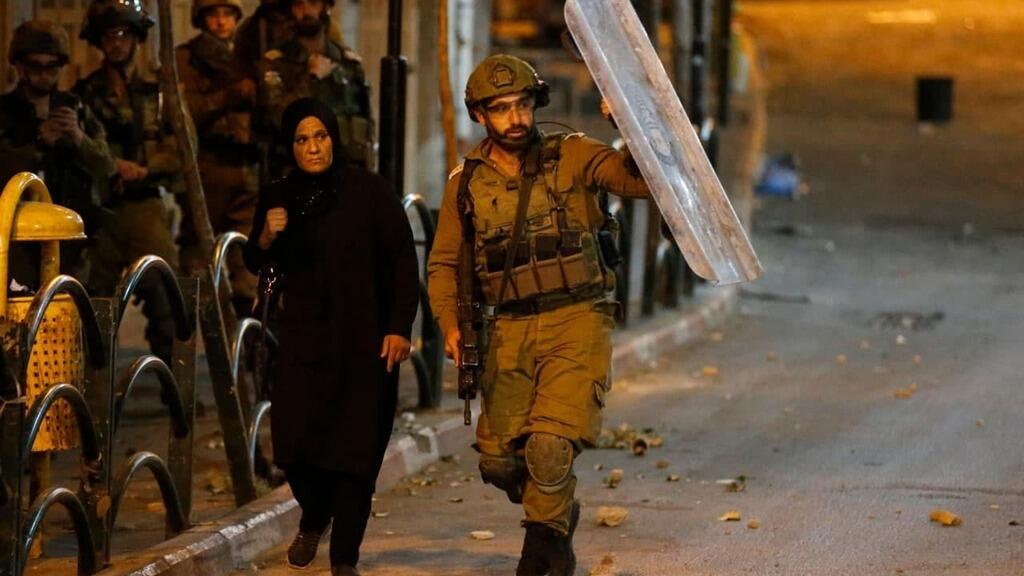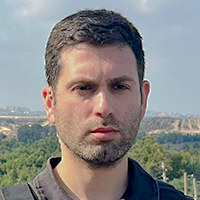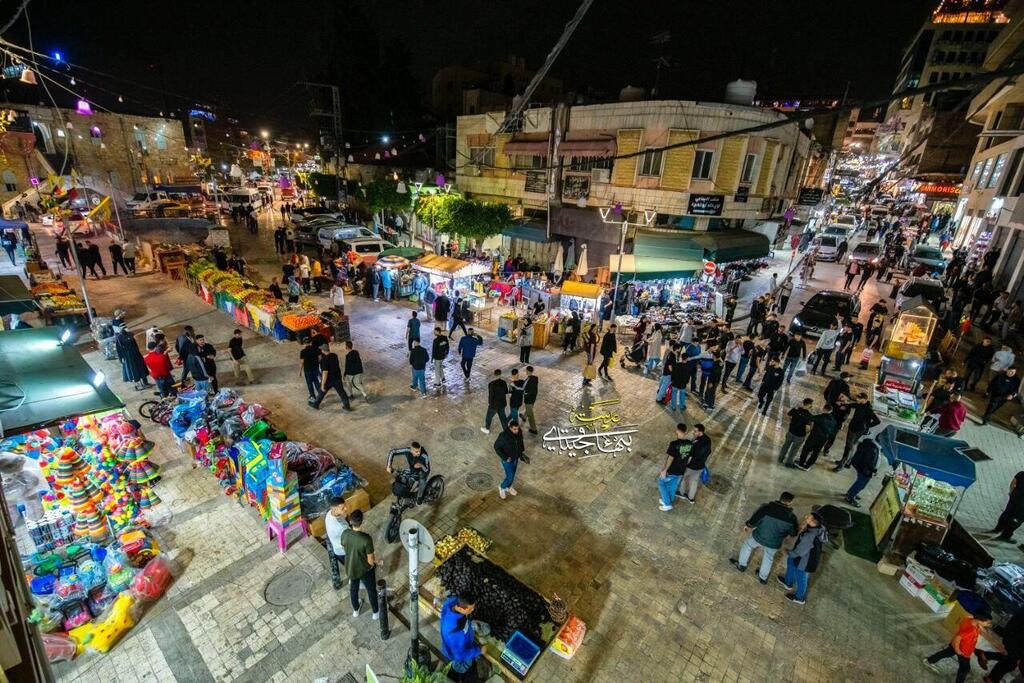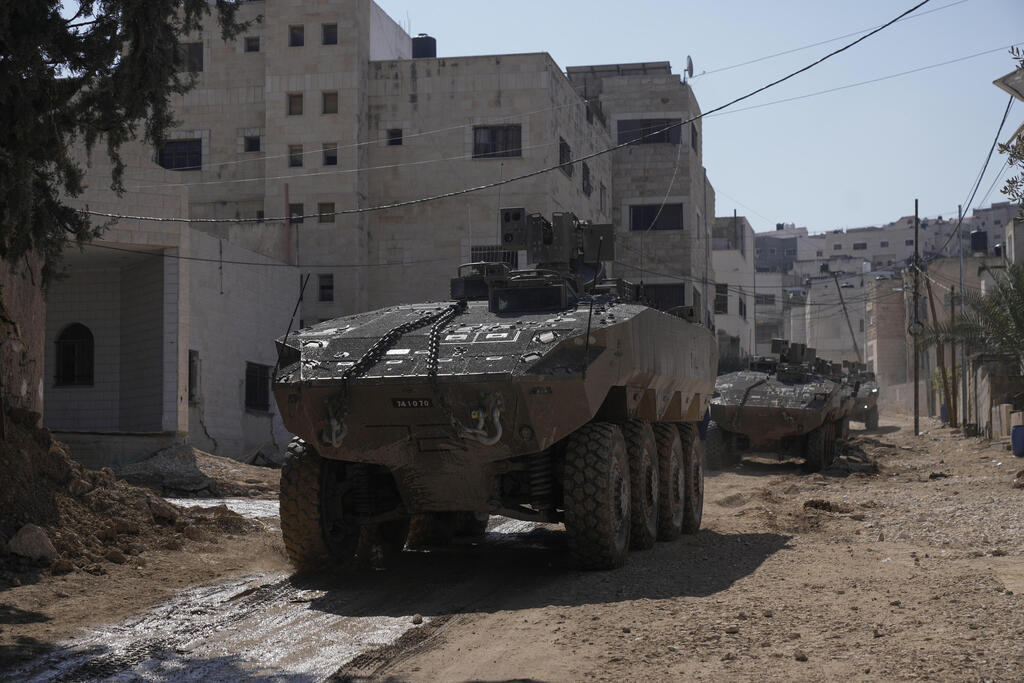As Israeli troops prepare to withdraw from two refugee camps in the West Bank—seized more than two months ago—to focus on expanding ground operations in Gaza, Israel has recently, and quietly, approved a series of measures to ease restrictions for Palestinians in Tulkarm and Jenin. This move is part of a return to the "carrots and sticks" policy in the West Bank.
On Tuesday, Israeli authorities opened access for Israeli Arabs to enter Jenin—and from there, Tulkarm—via the Jalameh checkpoint, south of Afula. Over 4,000 vehicles with yellow Israeli license plates passed through the checkpoint on their way to shop in the large Palestinian city in the northern West Bank.
Troops were expected to further extend the timeframe for free passage at the few remaining checkpoints around Tulkarm—potentially beyond the current eight-hour daily window. In recent days, the Defense Ministry has also issued new permits for dozens of Palestinian businessmen and traders from the West Bank, enabling them to enter Israel to support their economic stability. Meanwhile, in the abandoned refugee camp in Jenin, where Israeli forces have been stationed for two months in Palestinian homes, displaced residents have been allowed to return to collect their personal belongings.
In Tulkarm, where the nearby Nur Shams refugee camp is similarly controlled by the Kfir Brigade, more than 400 Palestinian requests have been approved by Israeli security officials. These include humanitarian crossings, infrastructure repairs, and other coordinated activities.
On Tuesday, a scene not witnessed in the area for over two years occurred at the Nur Shams camp: Palestinian Authority tractors and trucks, with Israeli approval, repaved roads that Israeli engineering units had destroyed in the past year during operations to uncover hundreds of explosive devices hidden by militants. “Now that these routes have been cleared of traps, they can be repaved,” explained the Israeli military.
Israeli forces are also coordinating with Palestinian Authority security forces, allowing them to carry out extensive and unprecedented security activities almost daily in villages near Jenin and Tulkarm. These operations include the arrests of hundreds of wanted Palestinians, the seizure of weapons and ammunition, and operations in areas where Palestinian police had not been active for years. This cooperation has eased the operational burden on Israeli troops, allowing them to focus on deep raids targeting significant terror hubs in the region—namely, cells and infrastructure attempting to regroup.
Another measure, aimed at addressing the unemployment gap among Palestinians—exacerbated by the Israeli government’s ban on most Palestinian workers entering Israel since October 7—involves allocating agricultural lands at safe distances from the West Bank security barrier for cultivation. Unlike in previous years, Palestinian Authority institutions and businesses in the West Bank have not gone on strike in protest against Israeli operations in refugee camps in the area.
“The Palestinian Authority is being accused by its own public of betrayal, collaboration with Israel, and neglecting the thousands of residents from the two refugee camps who were displaced and left without new housing solutions,” Israeli sources said. “Only now has the Palestinian Authority announced plans to distribute mobile homes to some of them, but these are to be set up on their agricultural lands—and not all of them have such lands.”
Israeli forces are making every effort to minimize friction with the Palestinian population while improving the local economic situation. Data supplied to Israeli officials indicates that daily revenues of Palestinian businesses in areas like Tulkarm have dropped by 70% this year compared to previous Ramadan holidays.
The military is also expected to recommend fully reopening certain roads in other parts of the West Bank to Palestinian vehicles, such as Route 60, given that these areas already have a strong IDF presence and frequent activity.
Get the Ynetnews app on your smartphone: Google Play: https://bit.ly/4eJ37pE | Apple App Store: https://bit.ly/3ZL7iNv
Within the military, some officials have criticized the blanket closure of roads in the Tulkarm area to Palestinian movement at the start of Operation Iron Shield as “populist” and unprofessional. “There are 300,000 Palestinians living in the Tulkarm area, for example, and we don’t want them idle, unemployed, or out of schools, potentially directing their frustrations toward Israeli positions through riots and daily traffic jams that endanger our soldiers and Israelis traveling on shared roads,” explained military officers.
“Our long series of operations in the northern West Bank has led to a sharp drop in the number of attacks. We’ve requested to maintain forces in these two refugee camps at least until the end of the year, as these are areas without Israeli settlements or military outposts. Our level of activity hasn’t decreased in the southern West Bank either, where the Popular Front and Hamas are trying to revive dormant networks, particularly in Hebron.”
4 View gallery


IDF officer protects Palestinian woman from stones in Hebron during clashes
(Photo: Hebron)
Central Command Chief Avi Blot has ordered a renewed focus on ethical conduct across all security units in the West Bank, and brigade-level discussions on this issue have intensified. “Out of the 12,000 operations we’ve conducted in the West Bank since the war began, only a handful ended in unethical incidents. Of the more than 800 people we’ve neutralized, only 4% turned out to be uninvolved civilians,” Israeli officials said.
“We are dealing with regular combat soldiers and commanders whose operational experience has been limited to intense fighting in Gaza. Now, they’re tasked with routine security missions in the West Bank. We’re using this opportunity to reteach them the basics from scratch—things like maintaining a post, defensive routines, and road maintenance. We’re explaining to these excellent soldiers—who just a year ago were firing direct artillery at enemy houses in Gaza—how to operate in a civilian environment and distinguish between combatants and non-combatants.”





